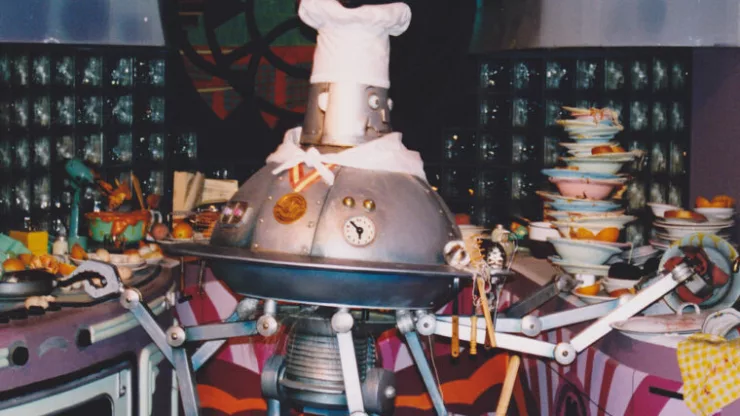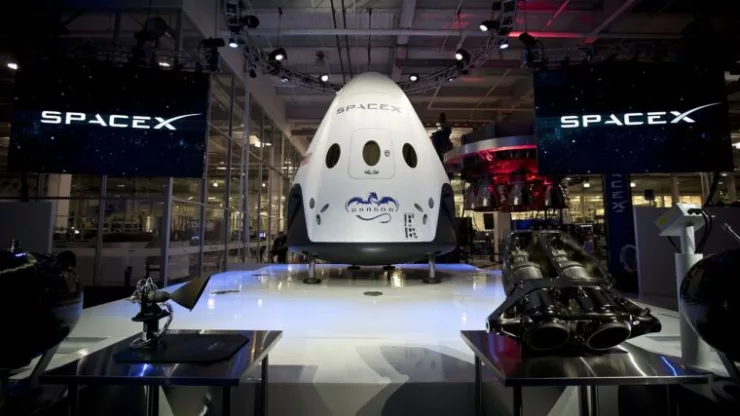As technology advances, so does its influence on various aspects of our lives, including our relationship with food. Robotic chefs represent the intersection of technology and gastronomy, offering new possibilities in food preparation and culinary experiences.
In this article, we’ll delve into the current state of robotic chefs, their potential to revolutionize the culinary world, and the questions they raise about the future of cooking.
The Advent of Robotic Chefs
Robotic chefs are sophisticated machines designed to prepare and cook meals with minimal human intervention.
These cutting-edge devices utilize advanced robotics, artificial intelligence, and machine learning to replicate the skills and techniques of professional chefs.
Some notable examples of robotic chefs include:
- Moley Robotics: Developed by a UK-based company, the Moley robotic kitchen features a pair of robotic arms that can mimic the movements and techniques of master chefs, preparing a wide range of dishes from a digital recipe library.
- Flippy: A burger-flipping robot created by Miso Robotics, Flippy is designed to work alongside human staff in fast-food restaurants, improving efficiency and consistency in burger preparation.
Meet the robot chef that not only does the cooking but also washes dishes for you.
Working with famous chefs, Moley Robotics built this robotic kitchen. #gigadgets #robotics #iot #smarthome #artificialintelligence #machinelearning pic.twitter.com/aVrxniNggc— GiGadgets (@gigadgets_) August 27, 2021
The Benefits of Robotic Chefs
The introduction of robotic chefs into the culinary landscape offers several potential benefits:
- Consistency: Robotic chefs can ensure a consistent level of quality and presentation in the dishes they prepare, which is particularly advantageous for large-scale food operations or chain restaurants.
- Efficiency: With their ability to work tirelessly and accurately, robotic chefs can significantly increase productivity in commercial kitchens.
- Hygiene: As robots are not susceptible to illness and can maintain strict hygiene standards, their use in food preparation could reduce the risk of foodborne illnesses.
Challenges and Ethical Considerations
Despite their potential advantages, the implementation of robotic chefs also raises several challenges and ethical concerns:
- Job displacement: The widespread adoption of robotic chefs could potentially displace human workers in the food industry, leading to unemployment and socio-economic challenges.
- Loss of craftsmanship: The art of cooking and the skills of professional chefs might be diminished or lost if robotic chefs become the norm in kitchens.
- Cost and accessibility: The initial cost of implementing robotic chefs could be prohibitive for many restaurants, potentially widening the gap between high-tech establishments and traditional eateries.
The Future of Robotic Chefs
As robotic chefs continue to evolve, we can expect to see further advancements in their capabilities and applications.
From personalized meal preparation in homes to large-scale food production in commercial settings, these machines have the potential to reshape the culinary landscape.
Conclusion
The emergence of robotic chefs presents an intriguing glimpse into the future of food and cooking.
While these machines offer numerous advantages in terms of efficiency and consistency, it is crucial to carefully consider their potential impact on the culinary industry and society as a whole.
Only by striking a balance between embracing technological innovation and preserving human craftsmanship can we ensure a harmonious culinary future.
FAQ
Q: What is a robotic chef?
A: A robotic chef is a machine designed to prepare and cook meals using advanced robotics, artificial intelligence, and machine learning to replicate the skills and techniques of professional chefs.
Q: What are some examples of robotic chefs?
A: Examples of robotic chefs include Moley Robotics’ robotic kitchen, which features a pair of robotic arms that can mimic the movements and techniques of master chefs, and Flippy, a burger-flipping robot created by Miso Robotics to work alongside human staff in fast-food restaurants.
Q: What are the potential benefits of robotic chefs?
A: Robotic chefs can offer benefits such as consistency in food quality and presentation, increased efficiency and productivity in commercial kitchens, and improved hygiene standards.
Q: What challenges and ethical considerations are associated with robotic chefs?
A: The implementation of robotic chefs raises challenges and ethical concerns, such as potential job displacement in the food industry, the loss of culinary craftsmanship, and the cost and accessibility of the technology.
Q: What is the future of robotic chefs?
A: The future of robotic chefs will likely see advancements in their capabilities and applications, with potential uses ranging from personalized meal preparation in homes to large-scale food production in commercial settings.
However, it is essential to balance the adoption of this technology with preserving human craftsmanship and addressing its socio-economic impacts.

I am a fun fact enthusiast and creator of Facts On Tap.
I love to share my knowledge and curiosity with readers and inspire them to learn something new every day.
When I’m not writing, I enjoy traveling, reading, and playing trivia games with my friends.





